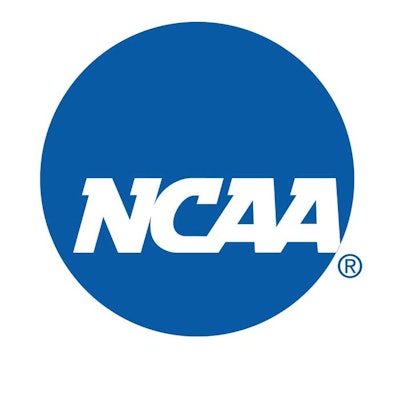
A federal judge issued a 14-day temporary restraining order against the NCAA on Wednesday, allowing college athletes who were denied the chance to play immediately after transferring a second time to return to competition.
As reported by The Associated Press, U.S. District Judge John Preston Bailey in northern West Virginia issued the order against the NCAA from enforcing the transfer rule. A lawsuit filed by West Virginia and six other states alleged the rule’s waiver process violated federal antitrust law. The order clears the way for athletes to play during the two-week period and also ensures that schools won’t be punished for allowing it.
The NCAA said in a statement it would comply with the order and notify schools.
According to the AP's John Raby and AP football writer Ralph Russo, t he ruling comes while the transfer window is open for football and creates an opportunity for players who have already transferred using their so-called one-time exception for immediate eligibility to enter the portal again and be cleared to compete next season.
A hearing on the restraining order is scheduled for Dec. 27.
NCAA rules allow underclassmen to transfer once without having to sit out a year, as was dictated by previous transfer rules. But an additional transfer as an undergraduate generally requires the NCAA to grant a waiver allowing the athlete to compete immediately. Without it, the athlete would have to sit out for a year at the new school.
Last January, the NCAA implemented stricter guidelines for granting those waivers on a case-by-case basis, the AP reported.
Bailey wrote that the transfer rule “is the exact kind of unreasonable restraint of trade within labor markets that the relevant antitrust laws prohibit” and that the plaintiffs “have a strong likelihood of success.”
The states involved in seeking the restraining order were Colorado, Illinois, New York, North Carolina, Ohio, Tennessee and West Virginia.
It wasn’t immediately clear whether any of the affected players would try to compete during the 14-day window.
Related: Seven Attorneys General Sue NCAA Over Existing Transfer Rules
West Virginia attorney general Patrick Morrisey said he’s “looking forward to proving definitively” that multi-transfer athletes should be able to play without a waiting period.
The lawsuit alleged requiring athletes to sit can mean lost potential earnings from endorsement deals with their name, image and likeness or professional careers. It pointed to exposure from competing in national broadcasts, noting: “One game can take a college athlete from a local fan favorite to a household name.”
“It is ironic that this rule, stylized as promoting the welfare of college athletes, strips them of the agency and opportunity to optimize their own welfare as they see fit,” the lawsuit said.
According to the AP report, the waiver process has become a source of frustration throughout college sports. Since the rules were changed to allow all athletes to transfer one time before graduating and be immediately eligible to compete, some are questioning whether any exceptions should be made for athletes who look to transfer a second time as an undergraduate.
“I’ve served in the men’s basketball aspect of the NCAA for quite some time on some committees and you ask most coaches and they’ll say, ‘We don’t want any waivers. There shouldn’t be any waivers,’” Conference USA commissioner Judy MacLeod said last week during a panel at the Intercollegiate Athletics Forum in Las Vegas. “But as soon as they get a kid that they want want to get eligible, they’re all for a waiver.”





































